第28章 BURIED TREASURE(3)
After glancing over it in a masterly way, he leaned back in his chair and bestowed upon me an explosion of sardonic, superior, collegiate laughter.
"Well, you are a fool, Jim," he said, when he could speak.
"It's your play," said I, patiently, fingering my double-six.
"Twenty," said Goodloe, making two crosses on the table with his chalk.
"Why am I a fool?" I asked. "Buried treasure has been found before in many places."
"Because," said he, "in calculating the point on the river where your line would strike you neglected to allow for the variation. The variation there would be nine degrees west. Let me have your pencil."
Goodloe Banks figured rapidly on the back of an envelope.
"The distance, from north to south, of the line run from the Spanish mission," said he, "is exactly twenty-two miles. It was run by a pocket-compass, according to your story. Allowing for the variation, the point on the Alamito River where you should have searched for your treasure is exactly six miles and nine hundred and forty-five varas farther west than the place you hit upon. Oh, what a fool you are, Jim!"
"What is this variation that you speak of?" I asked. "I thought figures never lied."
"The variation of the magnetic compass," said Goodloe, "from the true meridian."
He smiled in his superior way; and then I saw come out in his face the singular, eager, consuming cupidity of the seeker after buried treasure.
"Sometimes," he said with the air of the oracle, "these old traditions of hidden money are not without foundation. Suppose you let me look over that paper describing the location. Perhaps together we might--"
The result was that Goodloe Banks and I, rivals in love, became companions in adventure. We went to Chico by stage from Huntersburg, the nearest railroad town. In Chico we hired a team drawing a covered spring-wagon and camping paraphernalia. We had the same surveyor run out our distance, as revised by Goodloe and his variations, and then dismissed him and sent him on his homeward road.
It was night when we arrived. I fed the horses and made a fire near the bank of the river and cooked supper. Goodloe would have helped, but his education had not fitted him for practical things.
But while I worked he cheered me with the expression of great thoughts handed down from the dead ones of old. He quoted some translations from the Greek at much length.
"Anacreon," he explained. "That was a favorite passage with Miss Mangum--as I recited it."
"She is meant for higher things," said I, repeating his phrase.
"Can there be anything higher," asked Goodloe, "than to dwell in the society of the classics, to live in the atmosphere of learning and culture? You have often decried education. What of your wasted efforts through your ignorance of simple mathematics? How soon would you have found your treasure if my knowledge had not shown you your error?"
"We'll take a look at those hills across the river first," said I, "and see what we find. I am still doubtful about variations. I have been brought up to believe that the needle is true to the pole."
The next morning was a bright June one. We were up early and had breakfast. Goodloe was charmed. He recited--Keats, I think it was, and Kelly or Shelley--while I broiled the bacon. We were getting ready to cross the river, which was little more than a shallow creek there, and explore the many sharp-peaked cedar-covered hills on the other side.
"My good Ulysses," said Goodloe, slapping me on the shoulder while I was washing the tin breakfast-plates, "let me see the enchanted document once more. I believe it gives directions for climbing the hill shaped like a pack-saddle. I never saw a pack-saddle. What is it like, Jim?"
"Score one against culture," said I. "I'll know it when I see it."
Goodloe was looking at old Rundle's document when he ripped out a most uncollegiate swear-word.
"Come here," he said, holding the paper up against the sunlight.
"Look at that," he said, laying his finger against it.
On the blue paper--a thing I had never noticed before--I saw stand out in white letters the word and figures : "Malvern, 1898."
"What about it?" I asked.